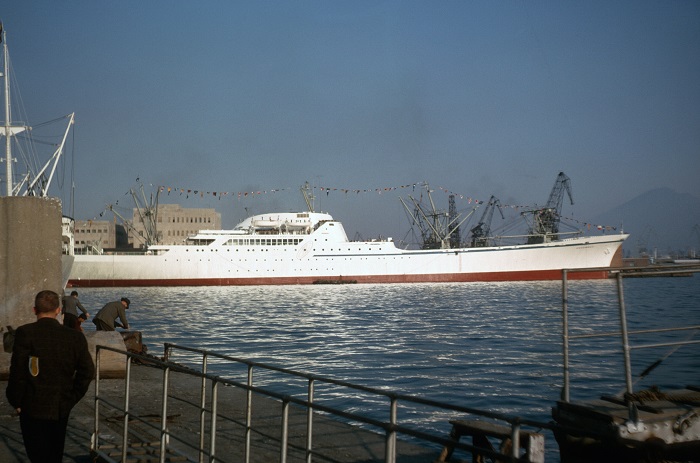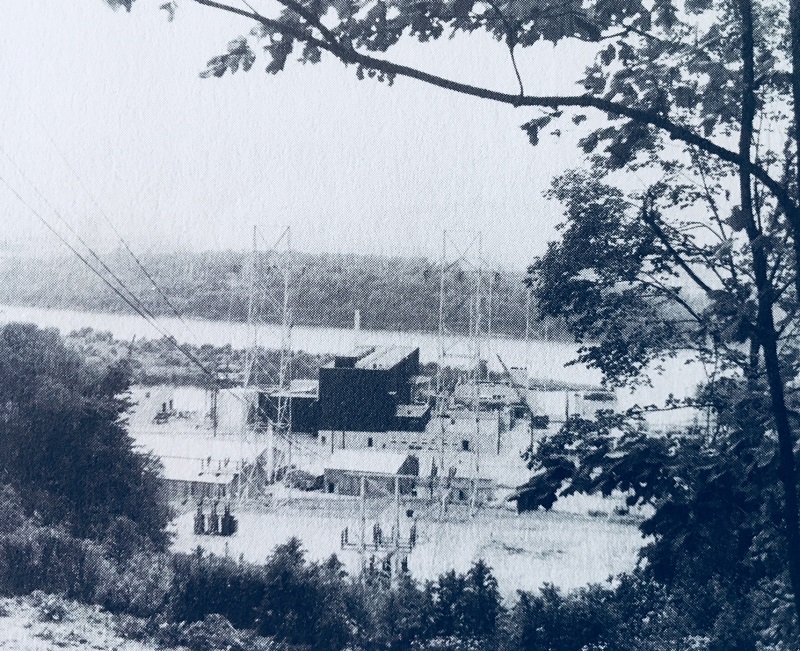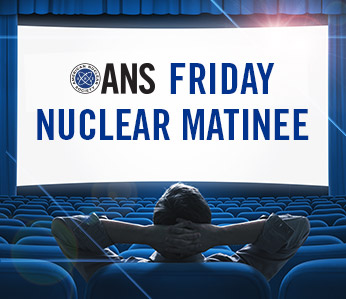Take a Peek Inside the Largest Hot Cell in the U.S.
Courtesy of the U.S. Department of Energy Office of Nuclear Energy
The ANS Nuclear Cafe is a blog owned and edited by the American Nuclear Society. Information contained on the ANS Nuclear Cafe has been provided by numerous sources. Therefore, the American Nuclear Society assumes no responsibility or liability for the accuracy of information contained herein. DISCLAIMER: The views expressed in posted articles do not necessarily reflect the views of the American Nuclear Society. The views expressed here are those of the individual authors. ANS takes no ownership of their views. The American Nuclear Society assumes no responsibility or liability for any use or operation of any methods, products, instructions, or ideas contained on this site.

A message from Electrical Builders, Ind.
America’s Top Performing Nuclear Plants Rely on Electrical Builders, Industries to Expand and Extend the Life of Their Critical Electrical Assets
Courtesy of the U.S. Department of Energy Office of Nuclear Energy
Testimony Before the New Jersey Senate Environment and Energy Committee and the Assembly Telecommunications and Utilities Committee

NS Savannah, mid-1960's. Photo taken by crew member Dan Campbell, courtesy NS Savannah Association, Inc.
With the increasing concern these days about the pollutants that commercial ships traveling all over the world's oceans put into the air, there's a rumbling undertone starting again about moving to nuclear powered commercial (that is, non-military) ships. There was a "First Nuclear Ship" era already, and it did give us some valuable lessons.
 Students: we know the value of a couple thousand dollars. Receiving an ANS scholarship could mean the opportunity less shifts at work and focus on classes, buying textbooks, or even just eating a bit better (and healthier) than ramen noodles every day. I'm not here to tell you why you can use some extra money. I'm here to tell you all the other reasons why applying for an ANS scholarship is valuable.
Students: we know the value of a couple thousand dollars. Receiving an ANS scholarship could mean the opportunity less shifts at work and focus on classes, buying textbooks, or even just eating a bit better (and healthier) than ramen noodles every day. I'm not here to tell you why you can use some extra money. I'm here to tell you all the other reasons why applying for an ANS scholarship is valuable.
By now we all know that Energy Secretary Perry's initiative to get the Federal Energy Regulatory Commission (FERC) to consider longevity of fuel supply has fallen and been replaced with an order to study the situation and, hopefully, come up with some kind of solution within 60 days. FERC's press release from yesterday reads in part thus:
Breaking: In a unanimous vote, the Georgia Public Service Commission (PSC) has APPROVED a multi part motion by Commissioner Tim Echols which allows the Vogtle 3 and 4 project to move forward, but which reduces burden on ratepayers and places more on shareholders of the owners. Georgia Power accepted the new conditions immediately after the PSC vote and will continue construction of the project under the new management structure, which itself was approved by the Commission as one part of Echols' proposal (although it neither approved nor disapproved of the actual owners' agreement terms; it simply approved the project management structure).
There have been a number of significant and/or interesting developments in the nuclear energy field recently, with large light-water reactor business taking the fore. Here are some highlights:

Shippingport Atomic Power Station as pictured in original press package; photo PR-19109
•Shippingport started up 60 years ago today. On December 2, 1957, the reactor at the Shippingport Atomic Power Station, which was America's first, full-scale nuclear power plant, was made critical for the very first time. This event occurred fifteen years to the day after the historic first startup of the first nuclear reactor ever - the CP-1 pile near Chicago. Many important people, including Admiral Rickover, were present at the startup.
"Some recent work by E. Fermi and L. Szilard, which has been communicated to me in manuscript, leads me to expect that the element Uranium may be turned into a new and important source of energy in the immediate future." - Albert Einstein, letter to President Franklin D. Roosevelt, August 2, 1939
A short while back in early November, I decided to conduct a poll on Twitter - that oft-maligned, mostly misunderstood, microblogging site on which instantaneous outreach is seriously tempered by a roughly 19-minute-post-visibility lifetime. Even with the limitations, I thought my first-ever use of the polling tool would produce a pretty predictable result. I was off the mark.
Loyalty is inconvenient.

When you hear the friendly voice of Joe Washington, you know that it's time for another in the excellent series of "Vogtle Timeline" videos presented by Georgia Power. This most recent update covers some important ground - namely, the change in construction arrangements following Westinghouse's bankruptcy and how the project goes on from that point. Not only is physical progress at the plant site displayed, but community outreach and impact are also shown in this well produced video.
The story of America's first successful marine nuclear power plant as used on the submarine USS Nautilus is well known. What is less known today is the real story behind the competing, and in the end losing, design - an "advanced" design using sodium cooling that in some quarters was first thought to be the better choice.
A packed room was on hand for this morning's panel session on Used Nuclear Fuel Management, and following the interesting presentations by several speakers the crowd took part in an energetic and, at some times, lively discussion on where we are as a nation and as an industry on the issues of storage of used fuel and the potential for creation of storage or even, possibly, a repository. Given the present political environment, there's motion on the latter, which led to some of the liveliness of the discussion. We'll give just some of the remarks made by presenters below.
The keynote speech of this morning's Opening Plenary was delivered to a large crowd by newly-installed Deputy Secretary of Energy Dan Brouillette, who followed ANS President Bob Coward's positive and hopeful, if wary, tone on the platform.
"There's no one I'd rather go into battle with," said ANS President Bob Coward to a packed Opening Plenary audience this morning, "than nuclear professionals," in reference to the stated purpose of ANS in advancing nuclear technologies. Coward's very first remarks set the tone for a speech that was remarkably hopeful and bright given the recent blows that nuclear energy has suffered here in the United States.
What is an ideal energy source for electricity production? Students in my class say the ideal source must be plentiful, sustainable, inexpensive, reliable, safe, and produced right here in the United States thereby providing jobs.
The recent destruction of Puerto Rico's electric power infrastructure has been on the front page of every important news source at one time or another since the event near the end of September. Recent reports show that perhaps as little as 10 to 15 percent of the island has electric power available now.
(Part of a special series of videos filmed at the 2017 ANS Annual Meeting. By Will Davis.)